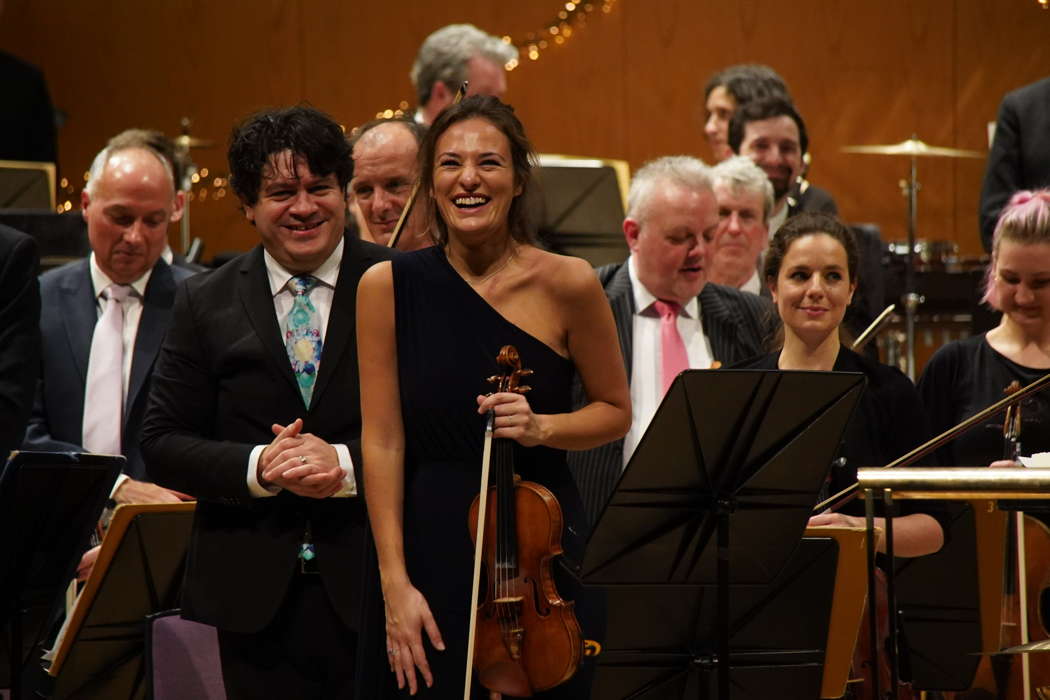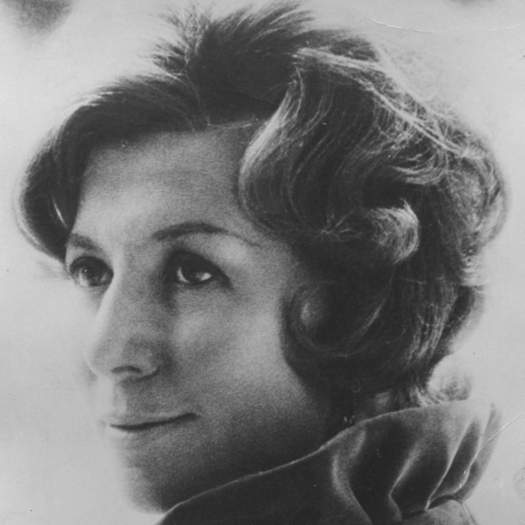- Varda Kotler
- Francisco Negrin
- Zbigniew Karkowski
- Johann Peter Salomon
- art songs
- Bolshoi Theatre
- John Keats
- National Gallery
Hugely Enjoyable
Bernstein, Marsalis and Musorgsky from Nicola Benedetti, Cristian Măcelaru and the Hallé Orchestra, reviewed by MIKE WHEELER
The overture to Bernstein's Candide is one of the sharpest, sassiest openers in the business, and the Hallé Orchestra and conductor Cristian Măcelaru had plenty of rumbustious fun with it - Royal Concert Hall, Nottingham, UK, 10 December 2021. Woodwind colours, in particular, came through strongly, with clarinets and bass clarinet bringing a nice smoky flavour to the quotation from the duet 'Oh, happy we'. The concluding helter-skelter romp had the kind of focused precision that made it all the more exhilarating.
As it happens, Cristian Măcelaru conducted the first US performance of the Violin Concerto that Wynton Marsalis wrote for Nicola Benedetti in 2015. In her second Nottingham appearance in just over a month, Benedetti pulled off what must be one of the most nerve-wracking openings to any violin concerto, in which the soloist is instructed to make an unaccompanied long-held note emerge 'out of nowhere'. The tune that follows wouldn't sound out of place in Samuel Barber's Violin Concerto. Benedetti gave it its full lyrical due, swooped and fluttered through the later tango-like episode, and produced some remarkably controlled pianissimo playing in the final dance-like fade-out.
The second movement's rowdier moments were suitably uninhibited. Benedetti clearly enjoyed making the kind of bird whistles I associate more readily with traditional Romanian fiddle music, and the cadenza that included a dialogue with one of the percussionists who had come to the front of the orchestra to play drum-kit at this point. The third movement, 'Blues', with its pungent woodwind scoring, seemed to acknowledge a debt to Duke Ellington. The finale is a hoe-down to rival Copland's, and when the trumpets, horns and trombones stood at the climax, it added a theatrical touch completely justified in the context. The end echoes that of the first movement, and Benedetti maintained intense concentration, walking slowly off-stage as she continued playing.
Marsalis' concerto tips its hat to various jazz and popular music styles - maybe too many, as it seems to lack coherence at times. It is also rather on the long side, but the best of it is hugely enjoyable, and the audience lapped it up.

Cristian Măcelaru, Nicola Benedetti and members of the Hallé Orchestra after one of the December 2021 performances of Winton Marsalis' Violin Concerto
Ravel's orchestration of Musorgsky's Pictures from an Exhibition has had its detractors over the years, but it continues to hold its pre-eminent spot against other versions: Henry Wood, Leopold Stokowski, etc, for a very good reason - simply that it's so highly effective. Măcelaru and the Hallé Orchestra were alert to the Promenade's varying moods - robust at the start, gently crooning, sturdy or reflective, as required. The snarling stopped horn in 'Gnomus' added to the music's sense of the grotesque. A gently swaying 'The Old Castle' was followed by a perky account of 'The Tuilleries' - the insistent two-note figure really did sound like children calling each other names - and there was an apt feeling of weariness as 'Bydło' trundled past.
The chicks in their shells hopped and fluttered energetically. Of the two Jews, Samuel Goldenberg sounded appropriately pompous, while Schmuyle's sharply stuttering solo trumpet line felt more like a protest than a complaint. And there was clearly some lively gossip being exchanged in the Limoges market place.
The abrupt switch to the brassy solemnity of 'Catacombs' was effectively contrasted with the ghostly tremolando strings of 'Con Mortuis in Lingua Mortua'. Amid Baba Yaga's dark malevolence, I don't remember hearing the cheeky allusion to the unhatched chicks standing out so clearly before. 'The Great Gate of Kiev' moved slightly quicker than some performances I've heard, and it made sense. The suggestions of Orthodox church chants were windows onto more private, secretive places, and the bell-evocations had a real air of celebration.
Copyright © 29 December 2021
Mike Wheeler,
Derby UK

NOTTINGHAM ROYAL CONCERT HALL ARTICLES




